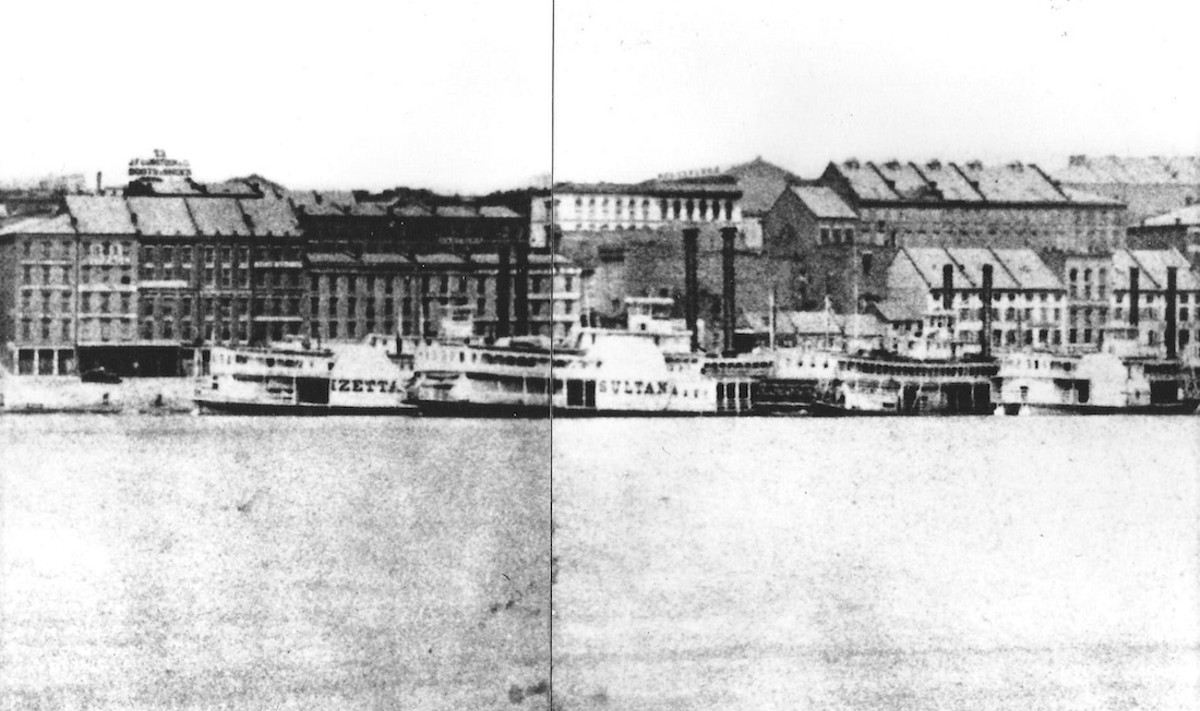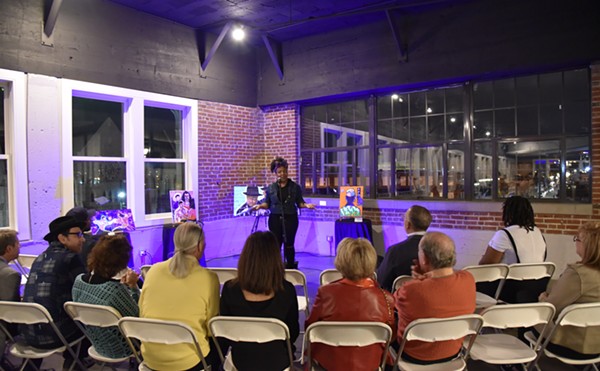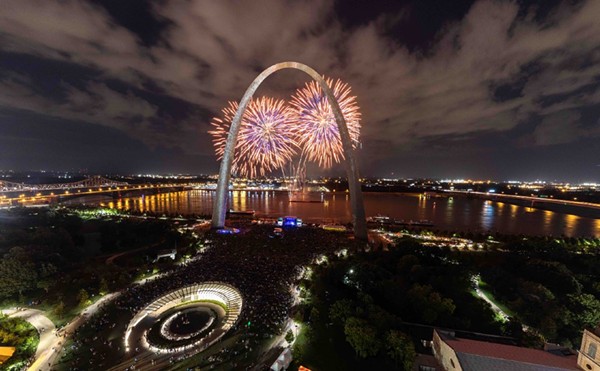For 25 years, Gene Salecker worked as a university police officer. There, Salecker met his wife, a professor, who inspired him to transition to the classroom, where he taught eighth grade for 12 years. Upon retiring in 2015, he became a full-time military historian, writing seven books in total on the Civil War and World War II. He has spent more than 30 years researching the Sultana Disaster and has become one of its leading authorities.
On April 27, 1865, the steamboat Sultana exploded on the icy cold Mississippi River, resulting in the greatest loss of life in a naval disaster in American history. The steamboat had been carrying 1,960 Union soldiers who’d been held as prisoners-of-war at two notorious Confederate prisons.
On April 26 and 27, descendants of victims and survivors, as well as history buffs, will gather in St. Louis for the annual Sultana Association reunion to honor and memorialize the Sultana Disaster. Salecker recently joined us to explain more about the disaster — and what keeps the story alive today.
This conversation has been edited for length and clarity.
Why has the Sultana’s explosion gone relatively overlooked by history?
I read all the Civil War books and nobody mentioned the Sultana. The reason that Sultana is so little known is it occurred at the same time that Abraham Lincoln was assassinated. In fact, the Sultana, which had a home base in St. Louis, set out from St. Louis on the eve on the morning of April 14, 1865, and went down river. It was at Cairo, Illinois, the next morning, April 15th, when word came through the telegraph that Lincoln had been assassinated in Washington. The captain of the Sultana, James Cass Mason, who also lived in St. Louis, knew that the South wouldn't have gotten this information because the telegraph lines were all torn up. So he grabbed as many newspapers as you could get and started off downriver as the first steamboat to spread the word of Lincoln's assassination to the south. He wanted to go down in history as the messenger of death, so to speak, and get himself a name.
The Sultana disaster happened on April 27, 1865, almost two weeks later. Well, all the newspapers are now reporting the search for John Wilkes Booth, who was shot on April 26. One day before the disaster there will be reporting on Lincoln's funeral train traveling across the United States to all these different stops, and all the newspapers talking about that. All this crowded out the Sultana.
Senator John Covode from Pennsylvania traveled out to Memphis, Tennessee, where the Sultana had exploded, and he found out that the men on board were from Ohio, Indiana, Michigan, Kentucky and Tennessee, all of what were called the Western states. After he reported this, the big newspapers in New York and Boston and Philadelphia just sort of said, ‘Oh, that's the Western guys that died. We won't worry about them.’ They had little blurbs here and there about the Sultana, but it would be on page four of a four-page newspaper all the way in the back.

How did you personally get into Sultana documentation? What makes you so dedicated?
I was just amazed that something like this could slip through the cracks of history. There was a survivor who worked with the Sultana Survivors Association, which was the actual survivors, and he collected their reminiscences. At 92, he published a book, Loss of the Sultana and Reminiscences of Survivors. It's everybody's personal accounts of what happened, 180 guys or something like that. When you read through it, what these guys went through, it just amazed me: Why did this fellow survive? And why did his friend or partner not survive? What did this guy do that was right and this other guy do that was wrong? It could have been just as simple as one fellow went to sleep with a blanket on and another person just lay down next to him. When the scalding water from the exploding boilers hit them, the blanket got soaking wet, but he survived, but the other guy got scalded. Some simple little thing like that. This happens at two o'clock in the morning on a dark river seven miles north of Memphis, and they started grabbing onto each other rather than jump from the side of the boat where there weren't as many people. There were, I believe, 962 survivors, and how did they survive? That's what got me.
This slip through history is something that occurs almost in the geographic center of the United States. And yet, we don't know about it. We know about the Titanic. We know about the Lusitania, which are English ships. And yet here is an American vessel — all the greed and corruption that went with the overloading of it — and to have it happen and then to be swept into the back pages of history. That's why I thought, no, we've got to work on this to get this so people know what's going on.
Decades after the last Sultana Survivors Association meeting, in 1931, the association was revived as the Association of Sultana Descendants and Friends. What led to that happening in 1987?
Norman Shaw lives in Knoxville, Tennessee, and was a big Civil War enthusiast, and had noticed that there was a monument in a Nashville cemetery to the Sultana disaster. The survivors formed reunion groups, and one was based in the North, which would have been the Indiana, Ohio and Michigan survivors, and they met around Toledo, but the Southern guys from Kentucky and Tennessee mostly met in Knoxville. The last survivor died in 1931 and the actual survivor reunions ended.
Norman Shaw wondered how many descendants might still be interested in perpetuating the memory of the Sultana. He put a little blurb in a national newspaper: “I'm going to have a meeting, and anybody interested meet at this national cemetery monument.” He was flabbergasted that between 40 and 50 people showed up. He didn't know what was gonna happen — he might have had one person or no people. Then he decided to do a formal sort of reunion in 1988. He put some ads out in Civil War magazines and more newspapers, and that's where I saw it. I saw that they were having this reunion in 1988 through a Civil War magazine, and I called Norman and said, “Do you have to be a descendant? Or can anybody show up?” and Norman said, “Well, I'm not a descendant. I just have a love of history and a love of the Civil War, and now a love of the Sultana.”
I had been working on a database of who was on board the Sultana, and I went to the reunion and met another fellow Jerry Potter, from Memphis, who had discovered the wreck of the Sultana. The Sultana is actually underneath an Arkansas soybean field because it had sunk in the river and been covered over the years with silt and then the Mississippi changed course, so the Sultana is really about two miles inland from the Mississippi River itself. But that was how it started. Norman Shaw, just by accident, said, “Gee, I wonder if anybody's interested in the Sultana,” and sure enough, over the years, we've grown to have descendants and enthusiasts from all over the United States.
What is the significance of this year’s reunion being in St. Louis?
This is the first time that we're coming here. The Sultana had been built in February 1863 in Cincinnati, but eventually came down the Ohio River to Mississippi, and its home port became St. Louis. It was considered a cotton steamboat, and it would travel from St. Louis down to New Orleans on a regular schedule picking up passengers and cotton and whatever stuff that they could find and bring back and forth. The Sultana, her captain James Cass Mason and the chief clerk were from St. Louis. A lot of the crew men were from St. Louis. Some of them are even buried there. They would leave St. Louis and go down to Cairo — that’s where they heard about Lincoln’s assassination, then traveled all the way down to New Orleans. On their way back, they stopped at Vicksburg, where they overcrowded with almost 2,000 paroled union prisoners to take back north.
Unfortunately, on the trip down river, when the Sultana stopped at Vicksburg to report Lincoln's assassination, an unscrupulous Illinois Captain Reuben Benton Hatch, a scoundrel, went on board and knew that Captain Mason was financially hurting, and he himself was financially hurting, and he knew that the government would be paying the steamboat captains to take a load up north so they could go home. These had been released prisoners of war from the horrors of Andersonville prison. They had suffered and they were pretty weak. So, Reuben Hatch meets with Mason and says, “The government will pay you to take 1,000 men up river. I know you're going all the way down to New Orleans and then back up. If I can somehow save 1,000 men for you, could you give me a kickback?” There was a bribery offered, and Mason readily accepted.
Unfortunately, word of a bribe leaked out to some of the other officers, but they did not know it was the Sultana or Hatch. When the Sultana comes back up river, these officers say, “We're going to try to head off this bribe and we're going to put every last soldier on the Sultana,” which was exactly what Mason and Captain Hatch wanted. The more men, the more money they would make. Unfortunately, it ends up exploding.
The other one of the other reasons that we're meeting in St. Louis is because St. Louis was the home of Julia Dent Grant, General Grant’s wife. General Grant was involved a little bit with the Sultana — he had at one point arrested Hatch. Captain Hatch was a quartermaster, a guy that would buy tents and horses and rent steamboats and get ice for the soldiers. He was buying stuff at one price but charging the government another price and pocketing the difference. Grant found out about this as his superior officer when they were at Cairo in 1861, and he had Hatch arrested. However, Hatch was a good friend of Abraham Lincoln, and Lincoln got Hatch released from arrest. So we know that if Grant’s arrest would have worked, Hatch would not have been in place, and perhaps the Sultana may not have gone down like that.
There's only two known pictures of the Sultana, and one of them is the Sultana at the St. Louis waterfront. It's not too far from where the Arch is, so we're going to try to get our group to stand there and take a picture in the approximate location of the Sultana docked when that picture was taken in about 1864.
How many association members can trace their heritage back to the Sultana?
I would probably say 85 percent are descendants of Sultana people. On Saturday, at the very end, we have a candlelight memorial where we have one person from each family with a candle. I believe last time we had like 35 different families represented. We light their candle, and then they tell us as we light it who their ancestor was. Then we say, “If your ancestor perished please blow out your candle,” and all these candles go out so the only ones still lit are survivors. And then we say, “Now, since all the survivors are gone, please blow out your candles,” and they all do and it's a very moving ceremony. You really see, at that point, how many people are represented.
In fact, this year we actually have a couple of people that are descendants of civilian passengers that were onboard the Sultana, not just the soldiers. The Sultana was also carrying paying passengers as well as crew members. We have about 65 people signed up, which is good.
Do you think sites like Ancestry.com are a factor in how many people are showing up?
Yes, I do. In fact, when we hear from people, they will say that, you know, I found out through Ancestry or I found out through Genealogy.com or even just on Facebook. “I noticed on Facebook, and I was wondering gee, I remember hearing the story from my great-great- grandmother of something about Sultana, but I didn't know what it was,” so they started asking questions in their family. And then even websites like yours, that all helps to spread the word, and then somebody reaches out and says, “I remember hearing something about the Sultana years ago, let me track that down.” And next thing you know, they're contacting us.
Is there any part of this history that I wouldn't be able to find by looking at the Wikipedia page or maybe reading a book you’d recommend?
I maintain the Wikipedia page, so I know it's accurate. Every now and then somebody will get in there and edit and put something in there. And I'm like, “Now, let's take that out.” So I try to keep it as accurate as possible.
I think I would be careful in some of the some of the books that are out there, as well as some of the websites that are out there. It's interesting. My first book came out in 1996. Even in that one, I thought there was about 1,700 people that were killed on board the Sultana, but over the years, I would see people would say 1,700 died. 1,800 died. 2,000 people died. And, “We think it was sabotaged: a boat was exploded by a Confederate saboteur.” And I said, “Wait a minute, first off, I know that it wasn't sabotage. But how many people really did die?”
I began heavy research to try to come up with the most accurate list of who was on board and who survived and who perished. I started finding people that were supposedly dead, but they were getting a pension in 1880 and 1890, and their headstone says they died in 1915. Then they didn't die on the Sultana. I was able to determine that 1,167 people died. So I would be cautious of looking at websites and books and magazine articles that still claim 1,700, 1,800, or 2,000 people died. … There was only one Union officer court martial for overcrowding the Sultana, and he was court martialed for the death of 1,100 people. So even back then they knew that it was only around 1,100 people.
Subscribe to Riverfront Times newsletters.Follow us: Apple News | Google News | NewsBreak | Reddit | Instagram | Facebook | Twitter | Or sign up for our RSS Feed






